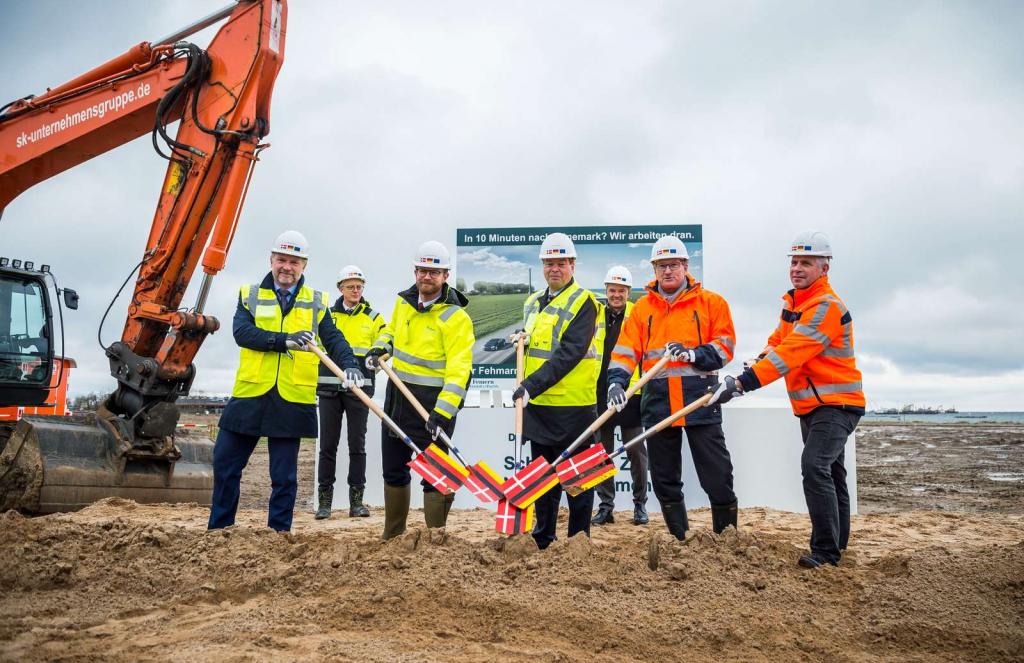Thessaloniki gets ready for its metro launch in November
The underground rapid transit lines have been under construction for almost two decades due to various project delays
 TheMayor.EU logo
TheMayor.EU logo 
Benny Engelbrecht, Danish Transport Minister and Bernd Buchholz, Transport Minister in Schleswig-Holstein , Source: Olaf Malzahn via Femern A/S
The underwater tunnel between Germany and Denmark will be a game-changer for Scandinavia, bringing it closer to central Europe
Today, one of the largest infrastructure projects in the European Union to date broke ground on the German island of Fehmarn. The project – an 18-kilometre-long underwater tunnel linking Germany and Denmark, has been in the works for some years now and will end up costing around 10 billion euros.
The ceremony was attended by the Schleswig-Holstein Transport Minister Bernd Buchholz and the Danish Transport Minister Benny Engelbrecht. The development will prove quite challenging, though and preparation works on the German and Danish sides have been underway since the start of 2021. The end date for the tunnel is set in 2029.
One of the most impressive features of the Fehmarn tunnel is a two-way electrified railway line, in addition to the six-car lanes. It will run from the German island of Fehmarn, near the town of Puttgarden to the Danish Rødbyhavn on Lolland island.
After the massive project is completed, a train ride from Hamburg to Copenhagen should take under three hours, compared to just under five hours now. Furthermore, the project is part of the EU’s overarching transport vision for the Scandinavian-Mediterranean corridor.
The corridor starts at the southern tip of Italy and finishes in Helsinki, passing through all of the Scandinavian capitals. This initiative should help to further integration and bring the northernmost parts of the bloc closer to the centre.
Cars will need just 10 minutes to pass through the tunnel at a speed limit of 110 kilometres per hour, while trains will be limited to 200 km/h and will need a total of 7 minutes. The whole tunnel will be constructed using 79 pre-fabricated pieces.
The project costs the Danish government 7.1 billion euros and another 3.5 billion for the German one. According to preliminary analysis, the tunnel should have paid for itself by generating cumulative income in less than 30 years.
After the construction started a nature protection organisation called Nabu filed a lawsuit against the project, as the planned route passed through 36 hectares of reefs that will inevitably be destroyed. The courts gave the go-ahead nevertheless.
According to the project's website, around 15 million cubic meters of sand and soil will be dredged from the seabed. Some of the material will be used for the construction, another portion will be used for the creation of new natural and recreation areas, in an attempt to offset the damage.

The underground rapid transit lines have been under construction for almost two decades due to various project delays

Now you can get your wine in Talence by paying directly in Bitcoin

That’s because the state has to spend money on updating the railway infrastructure rather than subsidizing the cost of the popular pass

Rethinking renewable energy sources for the urban landscape

The examples, compiled by Beyond Fossil Fuels, can inform and inspire communities and entrepreneurs that still feel trepidation at the prospect of energy transition

Now you can get your wine in Talence by paying directly in Bitcoin

The 10th European Conference on Sustainable Cities and Towns (ESCT) sets the stage for stronger cooperation between the EU, national and local level to fast track Europe's transition to climate neutrality.

At least, that’s the promise made by the mayor of Paris, Anne Hidalgo

The underground rapid transit lines have been under construction for almost two decades due to various project delays

At least, that’s the promise made by the mayor of Paris, Anne Hidalgo

Hostal de Pinós is located in the geographical centre of the autonomous region

Despite its church-y name, the district has long been known as the hangout spot for the artsy crowds

Urban dwellers across the EU are having a say in making their surroundings friendlier to people and the environment.

Forests in the EU can help green the European construction industry and bolster a continent-wide push for architectural improvements.

Apply by 10 November and do your part for the transformation of European public spaces

An interview with the Mayor of a Polish city that seeks to reinvent itself

An interview with the newly elected ICLEI President and Mayor of Malmö

A conversation with the Mayor of Lisbon about the spirit and dimensions of innovation present in the Portuguese capital














